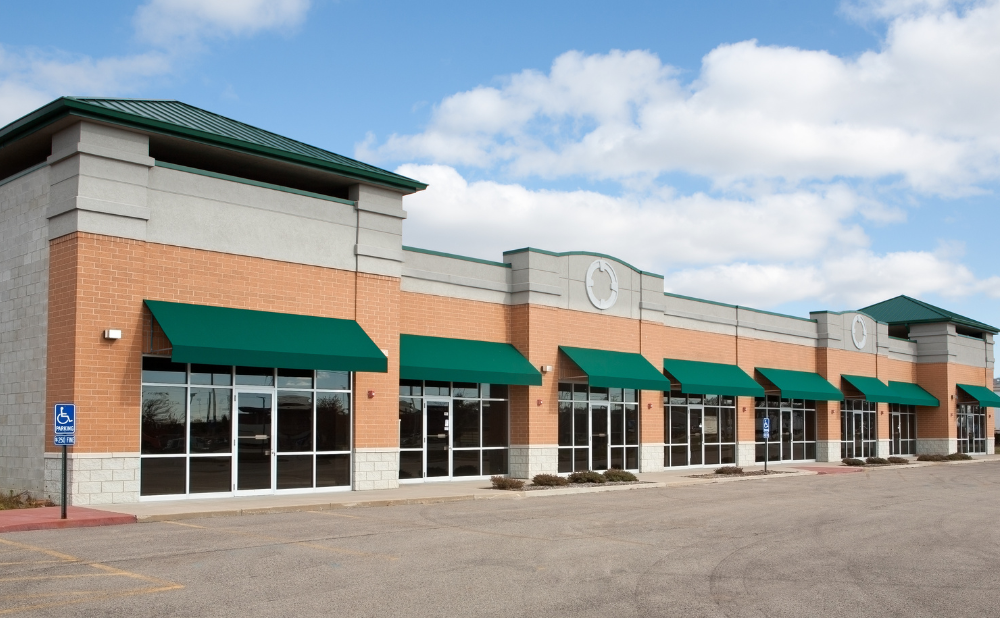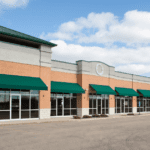Handling commercial property transactions can be challenging, especially in Pennsylvania. Unlike purchasing a personal vehicle or consumer goods, commercial real estate involves high-value deals and significant legal and financial responsibilities. In Westmoreland and Allegheny County, the stakes are even higher due to local zoning rules, permitting requirements, and property use regulations. That’s why having a knowledgeable commercial real estate lawyer is so important.
A commercial real estate lawyer can guide you through the complex legal framework that applies to business properties in Southwestern Pennsylvania. Whether you’re buying, selling, leasing, or developing, these transactions often involve intricate contracts, regulatory compliance, and substantial risks. If the property is part of an estate, you may also benefit from a lawyer with experience in both real estate and estate law.
Picture trying to review a dense commercial lease without help. Or imagine navigating municipal zoning codes on your own. These are not easy tasks. Misinterpreting one clause or missing a required approval can create serious complications. A commercial real estate lawyer can help you avoid these issues by carefully reviewing documents and identifying risks before they become problems.
Legal documents tied to business properties often contain detailed and technical language. Without proper review, a single oversight might result in future disputes or even litigation. By working with an experienced attorney familiar with Westmoreland and Allegheny County real estate practices, you can better protect your investment.
Partnering with a qualified real estate law attorney allows you to focus on your business while they manage the legal side. They may assist with contract negotiations, property inspections, title searches, and more, helping ensure your transaction proceeds smoothly and with fewer surprises.
What Exactly Does a Commercial Real Estate Lawyer Do?
What exactly does a commercial real estate lawyer do for you? Their role goes far beyond simply reviewing contracts. They serve as both advisor and advocate throughout the commercial real estate process. These professionals, often part of a focused law firm, have in-depth experience with the legal issues unique to business properties—very different from the laws governing residential transactions. Their work spans several key legal areas.
A knowledgeable commercial real estate lawyer or estate attorney brings valuable insight across multiple aspects of property law. Their guidance can be essential to avoiding delays and legal complications. Below are several common responsibilities they handle, reflecting their diverse and highly specific practice areas.
Property Transactions (Buying & Selling)
Buying or selling commercial property in Westmoreland or Allegheny County involves many steps and legal requirements. A commercial real estate lawyer manages key parts of this process, including detailed due diligence. This includes investigating the property title to confirm legal ownership and uncovering any liens or encumbrances. They also verify zoning laws to make sure the property can be used as intended for your business plans. In some cases, they may review environmental reports or property condition assessments, which are especially important in Pennsylvania real estate. This process helps identify potential red flags before you commit to a major investment. A local commercial property lawyer works to reduce risk and provide a smoother path to a successful transaction.
Another essential service is contract drafting and review. Your attorney carefully prepares or examines the purchase agreement, making sure all terms are clearly defined and protect your interests. They also negotiate key provisions on your behalf. From inspections to final closing, your real estate lawyer helps ensure each stage meets Pennsylvania real estate requirements and that no steps are overlooked. Their guidance can be critical to avoiding costly delays or legal disputes in the future.
Commercial Leases
Commercial lease agreements in Westmoreland and Allegheny County are often complex and detailed. Whether you are a landlord or a tenant, a commercial real estate lawyer can help you navigate these contracts. They assist with drafting, reviewing, and negotiating terms such as rent, lease duration, renewal options, permitted uses, repair obligations, and sublease rights. Seemingly minor details, such as how common area maintenance (CAM) charges are calculated or what triggers default, can have long-term financial consequences. Your lawyer can explain these provisions and flag any that may expose your business to unnecessary risk.
If a lease-related dispute arises, such as disagreements over rent payments, maintenance responsibilities, or early termination, your attorney can help resolve the matter. They may negotiate on your behalf or represent you in court if necessary. With a strong understanding of Pennsylvania real estate law, they work to protect your rights and promote fair outcomes in commercial leasing situations.
Land Use and Zoning
Westmoreland County and Allegheny County have strict zoning laws that govern how land can be used. These laws determine what types of businesses can operate in certain areas, as well as structural and use restrictions. A commercial real estate lawyer familiar with local land use rules helps determine what is legally permitted for your property. They often work with municipalities like Greensburg, Irwin, or the City of Pittsburgh to confirm zoning classifications and compliance. This step is especially important if you are planning a new build, expansion, or change of use.
If your plans require special approval, such as a variance, rezoning, or conditional use permit, your attorney helps guide the application process. They prepare documentation, attend hearings, and advocate on your behalf before planning boards or zoning appeals panels. Proper handling of these issues helps avoid costly delays or permit denials, keeping your project aligned with Pennsylvania real estate regulations and local development goals.
Real Estate Development
Commercial development projects in Westmoreland and Allegheny County involve multiple phases and legal considerations. From purchasing the land to completing construction, your commercial real estate lawyer supports the entire process. They assist with due diligence, site acquisition, and negotiating purchase and construction agreements. These contracts outline the responsibilities of contractors, architects, and suppliers. Your attorney also helps ensure environmental laws are followed, such as regulations enforced by the Pennsylvania Department of Environmental Protection, which can carry heavy fines if ignored.
In many cases, your attorney works directly with engineers, architects, and surveyors to coordinate permits and approvals. They monitor the project timeline and work to prevent legal problems, including disputes over contractor performance, site access, or delays. If your project involves multiple investors or business partners, your lawyer can help draft joint venture or partnership agreements, protecting all parties involved.
Dispute Resolution and Litigation
Commercial property disputes in Westmoreland and Allegheny County may arise from property boundaries, zoning violations, or breaches of contract. These disagreements often require legal action to resolve. A commercial real estate lawyer can help address these conflicts and protect your position. They may also assist with disputes related to estate administration, especially when inherited commercial property is involved. Common issues include title challenges, easement rights, or disagreements between co-owners.
When informal resolution is not possible, litigation may be necessary. Your attorney represents you in court, using their knowledge of Pennsylvania real estate law to advocate for a fair outcome. This includes handling matters such as breach of lease, construction defects, unpaid rent, eviction proceedings, or enforcement of contract terms. Their experience with real estate litigation in Western Pennsylvania courts can make a significant difference in how effectively your case is resolved.
Why You Can’t Afford to Skip Hiring a Commercial Real Estate Lawyer
Handling a commercial real estate transaction on your own might seem like a cost-saving move. You may be tempted to avoid attorney fees and try managing the process yourself. However, this choice can carry serious financial risks. What you save upfront might pale in comparison to the costs of a mistake, especially in high-value commercial property deals.
Commercial real estate often involves major investments. Protecting that investment should be a top priority. A knowledgeable commercial real estate lawyer helps you do just that. Their guidance may help prevent future legal disputes and reduce the chances of unexpected costs tied to Pennsylvania’s complex real estate laws.
Protecting Your Investment
One key responsibility of your real estate attorney is confirming the property’s legal status. This includes verifying that the seller has clear ownership and checking for liens, unpaid taxes, or judgments that could impact the transaction. If the property is inherited, your lawyer may also bring estate law experience to the table. Identifying and resolving these issues early can protect your investment and help ensure that your purchase goes as planned.
Understanding Complex Documents
Commercial real estate contracts can be long and full of dense legal language. They typically contain detailed clauses outlining rights, responsibilities, and risk-sharing. Missing or misunderstanding just one provision—like who pays for structural repairs or taxes—can result in unexpected costs. Your attorney reviews these agreements, spots red flags, and helps ensure that the terms support your interests. They can also explain what you’re signing in clear, straightforward language so you fully understand the deal.
Leveling the Playing Field
In many real estate transactions, the other party will have legal representation. If you’re unrepresented, you may be at a disadvantage. Their lawyer is focused on protecting their client’s interests—so who is protecting yours? By hiring your own commercial real estate lawyer, you ensure that your side of the deal is just as strongly supported. Your attorney advocates for you during negotiations and reviews, working to achieve fair and balanced terms.
Local Knowledge is Power
Real estate laws and local procedures often vary by municipality. What applies in Pittsburgh may be different from the rules in Irwin or Greensburg. That’s why working with a real estate attorney familiar with Westmoreland and Allegheny County matters. Local attorneys understand the zoning ordinances, permit procedures, and court systems that apply in your area. They also often have working relationships with county offices, realtors, and inspectors. This local insight can help prevent delays, resolve issues quickly, and guide your deal to a more efficient closing.
When Do You Need a Commercial Real Estate Lawyer in Westmoreland or Allegheny County?
Not sure if you need a lawyer for your commercial property transaction? If you’re involved in any of the following scenarios, it’s a good time to speak with a commercial real estate attorney who understands Pennsylvania laws and local procedures. The right legal guidance can help you avoid complications, delays, and unexpected costs.
You are buying or selling commercial property.
Whether it’s an office building, retail space, industrial facility, or mixed-use property, any commercial real estate transaction involves substantial financial and legal considerations. An attorney can help verify title, draft or review the purchase agreement, and ensure compliance with Pennsylvania and local regulations throughout the process.
You are negotiating or signing a commercial lease.
If you’re leasing space—either as a landlord or tenant—you’ll be entering into a legally binding contract. Lease terms can have long-term consequences, especially if you’re dealing with rent escalations, maintenance responsibilities, or termination clauses. A commercial real estate lawyer can review the lease, explain your obligations, and negotiate more favorable terms.
You are facing zoning or land use issues.
Planning to renovate, expand, or change the use of a commercial property? Zoning laws in places like Pittsburgh, Greensburg, and Irwin can be complex. An attorney familiar with local land use policies can guide you through the application process for permits, variances, or special exceptions, helping you avoid project delays or denials.
You are involved in a commercial property dispute.
Conflicts may arise between landlords and tenants, neighboring property owners, contractors, or even co-owners. Common disputes include boundary disagreements, lease violations, construction issues, and breaches of contract. A lawyer can help resolve these matters through negotiation or represent you in litigation if needed.
You are developing commercial real estate.
From forming a business entity to managing permits, construction contracts, and financing, commercial development requires legal oversight at every stage. If the property is part of an estate, additional estate law considerations may come into play. A lawyer can help coordinate with contractors, lenders, and local agencies to keep your project on track.
You are securing commercial financing.
Loan documents for commercial property are often lengthy and technical. An attorney can review the terms, identify risks, and ensure you fully understand your financial obligations. If the property is inherited or held in trust, working with an attorney who also practices estate law may provide added insight during administration.
If your business goals, finances, or property rights are on the line, it’s worth talking to a commercial real estate lawyer. Legal mistakes in real estate can be expensive. Even a brief consultation can offer clarity and help you make more informed decisions.
Common Pitfalls in Commercial Real Estate (And How a Lawyer Helps You Avoid Them)
Navigating commercial real estate isn’t always straightforward. Many transactions involve complex legal and financial elements that can lead to costly mistakes if not properly handled. From overlooked contract clauses to zoning complications, the risks are real. A knowledgeable commercial real estate lawyer helps you avoid these common pitfalls by applying their deep understanding of Pennsylvania real estate law and local regulations.
With a focus on due diligence, clear contracts, and long-term business planning, your attorney serves as both a legal safeguard and strategic advisor. The table below outlines several common challenges in commercial real estate—and how working with a qualified lawyer may help protect your investment and peace of mind.
| Pitfall | How a Real Estate Attorney Helps |
|---|---|
| Inadequate Due Diligence | Manages comprehensive investigations for real estate transactions, including title searches, survey reviews, and environmental assessments, to uncover hidden issues before closing on commercial real property. |
| Ambiguous or Unfavorable Contracts | Drafts, reviews, and negotiates clear, protective business contracts and lease agreements for commercial real, explaining all terms and obligations to prevent future contract disputes. |
| Disregarding Zoning & Land Use | Researches local zoning ordinances and PA real estate law, assists with obtaining necessary permits and variances, and represents clients before zoning boards or planning commissions. |
| Overlooking Environmental Risks | Advises on necessary environmental assessments, helps manage EPA regulations and other environmental laws impacting PA real estate, and mitigates risks associated with contamination or hazardous materials. |
| Complex Financing Arrangements | Reviews loan documents from lenders for commercial real estate transactions, negotiates fair terms, and helps secure financing that aligns with the client’s interests in these significant business transactions. |
| Poor Business Succession Planning for Property Assets | Assists in structuring commercial real property ownership and transfer mechanisms as part of broader business succession planning or estate planning, helping to protect assets for future generations or business partners. An estate law attorney can be particularly helpful here. |
| Neglecting Partnership or Shareholder Agreements | Helps draft or review comprehensive shareholder agreements or partnership agreements for entities holding commercial real estate, clarifying rights and responsibilities to prevent future business disputes among property co-owners or investors. |
Addressing these potential issues with the help of an experienced law attorney can save considerable trouble.
These are just a few examples; a good real estate attorney can provide a more detailed law overview for your specific situation. They may offer a consultation to discuss these and other concerns.
Finding the Right Commercial Real Estate Lawyer in Southwestern PA: Meet Bumbaugh | George | Prather | DeDiana
When searching for a commercial real estate lawyer in Southwestern Pennsylvania, experience and local insight matter. The attorneys at Bumbaugh | George | Prather | DeDiana concentrate on this area of law, offering trusted legal services to clients throughout Pittsburgh, Greensburg, Irwin, and surrounding communities. Their familiarity with the local real estate landscape, including zoning procedures, municipal codes, and market dynamics, can be a valuable asset in commercial transactions across Westmoreland and Allegheny Counties.
Choosing a real estate attorney is an important step in protecting your investment. You need someone who understands your goals and has a proven commitment to helping clients navigate the complexities of commercial property law. At Bumbaugh | George | Prather | DeDiana, building that trust is a priority. They offer more than transactional support—they also assist with related matters such as business formation or succession planning when property is tied to broader business decisions.
Experience That Counts
The team at Bumbaugh | George | Prather | DeDiana brings years of focused experience in commercial real estate and estate-related property matters. Their attorneys have helped clients address a wide range of challenges, from contract negotiation and title review to resolving boundary or lease disputes. With deep knowledge of Pennsylvania real estate law, they work proactively to spot issues early and guide you toward workable solutions. Clients often note the firm’s responsiveness, clarity, and dedication to solving problems in a practical and cost-effective way.
Local Knowledge of Westmoreland and Allegheny County Markets
Real estate is highly local, and understanding your specific market matters. Pittsburgh’s development trends are different from those in Greensburg or Irwin. Bumbaugh | George | Prather | DeDiana’s attorneys are deeply familiar with these regional variations. They understand how local zoning boards, planning departments, and government agencies operate. Some members of the firm are even alumni of Pittsburgh law schools, reinforcing their regional ties. This local expertise helps transactions proceed more smoothly and may reduce delays, helping clients move forward with greater confidence.
What Makes Bumbaugh | George | Prather | DeDiana Different
While many law firms offer real estate services, Bumbaugh | George | Prather | DeDiana focuses on building long-term relationships with clients. Their attorneys take the time to understand your goals and concerns. They emphasize clear communication and timely updates, so you are never left guessing about your case. Their approach is practical and solution-oriented, working to prevent issues before they arise and to keep your transaction on track. Whether you’re managing a commercial lease, purchasing a property, or navigating a complex estate-related real estate matter, they aim to make sure you feel supported every step of the way.
Conclusion
Managing commercial property is a complex process, distinct from residential real estate in both scope and legal requirements. The stakes are often higher, and the laws governing commercial real estate transactions are more intricate. That’s why working with a skilled commercial real estate lawyer is not just helpful—it’s often critical. From negotiating business contracts to interpreting zoning laws and ensuring compliance with Pennsylvania real estate regulations, a knowledgeable attorney helps protect your investment every step of the way.
Whether you’re buying, leasing, developing, or handling inherited commercial property, a qualified legal professional brings clarity and confidence to the process. Their guidance can help you avoid costly mistakes and keep your transaction on track. If you’re in Westmoreland County or elsewhere in Southwestern Pennsylvania, consider working with a trusted local law group like Bumbaugh | George | Prather | DeDiana. Their experience in both real estate and business-related legal matters can make a meaningful difference as you move forward with your commercial property goals.
FAQs About Choosing the Right Commercial Real Estate Lawyer
What should I look for when choosing a commercial real estate lawyer?
Look for an attorney with specific experience in commercial property transactions, not just general real estate law. It’s important that they understand zoning laws, contract negotiation, and Pennsylvania real estate regulations—especially if you’re operating in areas like Westmoreland or Allegheny County. A lawyer familiar with local permitting offices and market customs may offer added advantages.
How is a commercial real estate lawyer different from a residential one?
Commercial real estate lawyers focus on complex transactions involving office buildings, retail spaces, industrial properties, and multi-use developments. These deals often involve business contracts, zoning approvals, leasing structures, and larger financial risks. Residential lawyers typically handle home purchases and sales, which follow a different legal process.
When should I hire a commercial real estate attorney?
Ideally, you should hire a lawyer early—before signing a purchase agreement, lease, or construction contract. Early legal review can help you avoid pitfalls and negotiate more favorable terms. If you’re buying, selling, developing, or leasing commercial property in Pennsylvania, getting legal support from the start may save time and money.
Can a commercial real estate lawyer also help with estate-related property?
Yes, many commercial real estate lawyers also handle estate law matters. If the property is inherited or part of a business succession plan, an attorney with both real estate and estate planning experience can guide you through probate, title transfers, and tax considerations related to the property.
Why does local experience matter in commercial real estate law?
Real estate laws and permitting procedures vary by location. An attorney who regularly works in areas like Greensburg, Irwin, or Pittsburgh may know the local zoning boards, municipal requirements, and how local deals are typically structured. This local knowledge from commercial real estate attorneys can speed up the process and help prevent delays.








